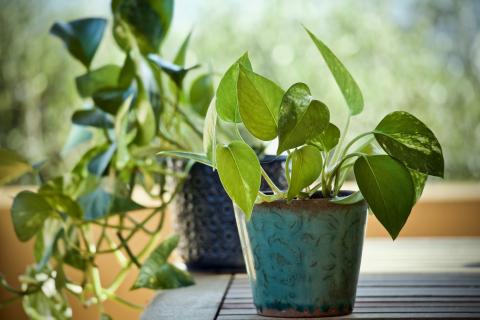Can You Recommend Some Easy to Grow House Plants for My Home?

Having success with house plants has everything to do with selecting the right plants based on the growing conditions in your home. While some plants require direct sunlight in order to thrive, others will do perfectly well in shade.
Evaluating Growing Areas In Your Home
Before purchasing any plants, pay attention to the placement and exposure of your windows. If the plants will be growing near a bright south facing window, you have many options. Low light rooms that only receive indirect light are more limiting. East or west facing windows are suitable for many houseplants, while north facing windows only work for plants that can tolerate heavy shade. Plants that don’t receive enough light will have long, leggy stems or leaves that are unusually dark green.
Selecting Houseplants For Your Home
If you're new to growing houseplants, it’s a good idea to start with something that is relatively easy to care for. Many of the toughest houseplants will tolerate a fair amount of abuse and neglect, including periodic drought, so no worries if you often forget to water. If you have a bright sunny window and a light hand with the watering can, consider growing some of the hardier succulents such as Aloe, Sempervivum, Kalanchoe, Rhipsalis, Agave, or Haworthia. If the only space you have for houseplants is dimly lit, you should still be able to have success with Sansevieria, English ivy (Hedera helix), Philodendron, or pothos (Epipremnum and Scindapsus). An east or west facing window should be suitable for a wide variety of other easy houseplants including Begonia, Christmas cactus (Schlumbergera), African violet (Saintpaulia), Dracaena, Hoya, Medinilla, Peperomia, Schefflera, or ZZ plant (Zamioculcas zamiifolia).
Caring For Your Houseplants
Of course even the most indestructible houseplants still require some standard considerations and care. No matter which houseplants you choose, they should be grown in containers with good drainage filled with a soilless potting mix. Water only when the soil is dry and do not allow them to sit in standing water. If you use saucers to collect drips below pots, make sure to empty them promptly. Nothing will kill a houseplant faster than overwatering. In addition, most houseplants do not put on much growth in the winter months, so you can wait to begin fertilizing until the spring.
Related Resource(s)
Do you love learning about stuff like this?
SUBSCRIBE TO Granite State Gardening newsletter
Got questions? The UNH Extension Yard and Garden Infoline offers practical help finding answers for your yard and garden questions.
Call toll free at 1-877-398-4769, Monday to Friday, 9 a.m. to 2 p.m., or fill out webform.
